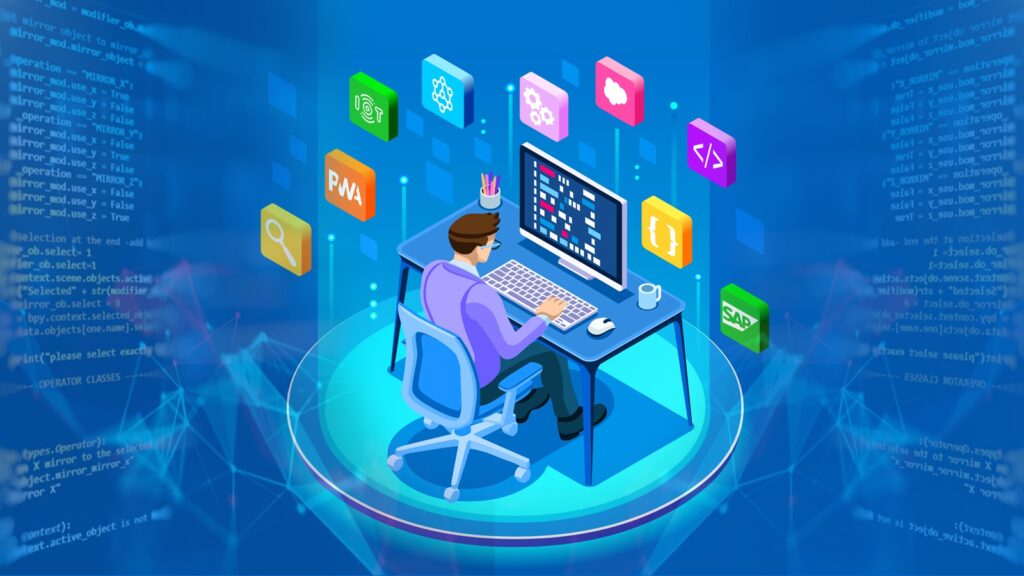Introduction
Software development is the backbone of the modern digital world. Every app, website, and system we use is built on the foundation of software development. This article will explore the software development process, the different types of software, and the skills required to succeed in this rapidly evolving field.
What Is Software Development?
Software development is the process of designing, coding, testing, and maintaining software applications. This can involve creating everything from simple mobile apps to complex enterprise systems that power businesses. Software development is a collaborative effort that requires a mix of technical expertise, creativity, and problem-solving skills.
The Software Development Life Cycle (SDLC)
- Planning: The first stage of software development is planning. This involves identifying the problem the software will solve, defining the project’s goals, and outlining the features and functionality of the software.
- Design: Once the requirements are understood, the design phase begins. Developers create blueprints for the software, which may include user interface (UI) designs, system architecture, and database schemas.
- Coding: In this phase, developers write the code for the software using programming languages such as Python, Java, or C++. Coding is the most time-consuming stage of development and requires attention to detail.
- Testing: After coding, the software undergoes rigorous testing to identify and fix any bugs or issues. This stage ensures that the software functions as intended and meets the user’s needs.
- Deployment and Maintenance: Once the software is tested and approved, it is deployed to production environments. Ongoing maintenance is required to fix any post-launch bugs and update the software as needed.
Types of Software Development
- Web Development: Web development focuses on building websites and web applications. This can involve both front-end development (UI/UX) and back-end development (server-side logic and databases).
- Mobile App Development: Mobile developers create applications for smartphones and tablets. They typically work with platforms like iOS and Android.
- Enterprise Software Development: Enterprise software development involves creating large-scale systems for businesses. These systems can manage everything from inventory to customer relations and finances.
- Game Development: Game developers create video games for consoles, PC, and mobile devices. Game development requires specialized knowledge of graphics, physics engines, and interactive design.
The Skills Needed for Software Development
- Programming Languages: A strong understanding of programming languages like Java, C++, Python, and JavaScript is essential for software developers.
- Problem-Solving: Software development involves solving complex problems, so strong analytical and problem-solving skills are crucial.
- Collaboration: Software development is often a team effort, so good communication and collaboration skills are necessary.
- Continuous Learning: The technology landscape is always changing. Successful developers stay up-to-date with new tools, languages, and methodologies.
The Future of Software Development
The future of software development looks promising, with advancements in AI, machine learning, and cloud computing. These technologies are changing how software is built and operated, making development faster and more efficient.
Conclusion
Software development is a dynamic and rewarding field that plays a critical role in shaping the digital world. From mobile apps to complex enterprise systems, software drives innovation across industries. By mastering the development process and staying current with technological advancements, software developers will continue to play a key role in building the future.



